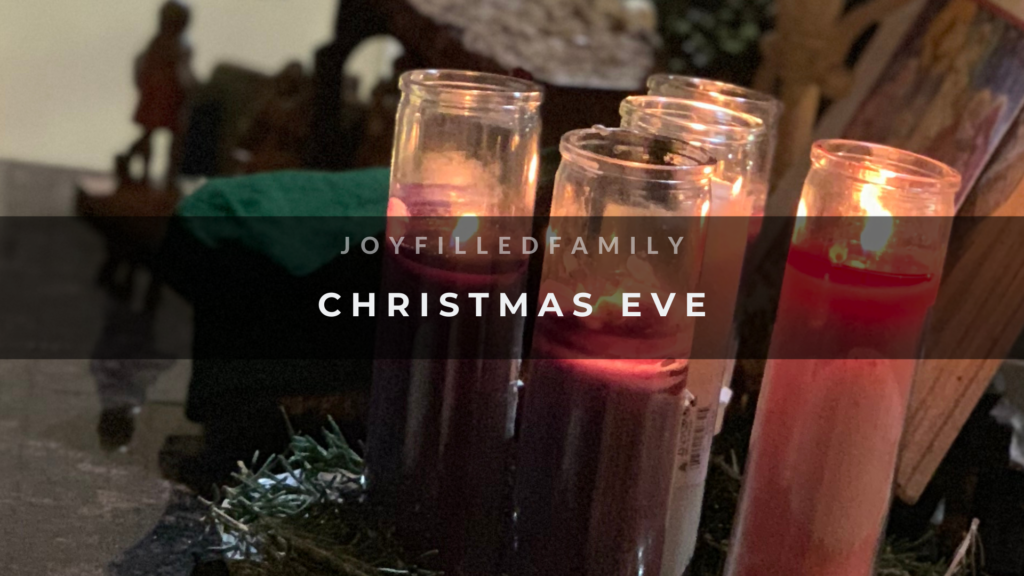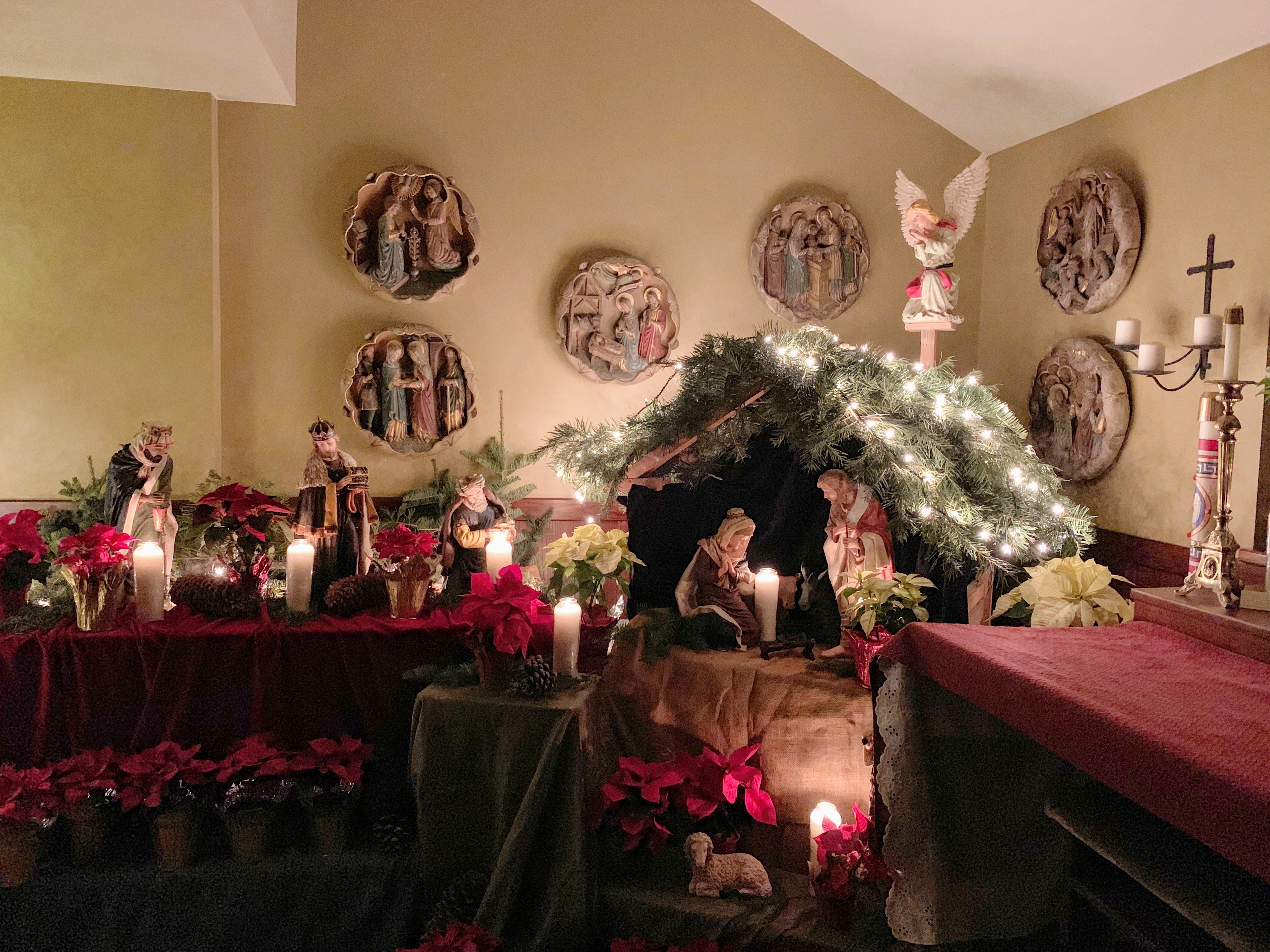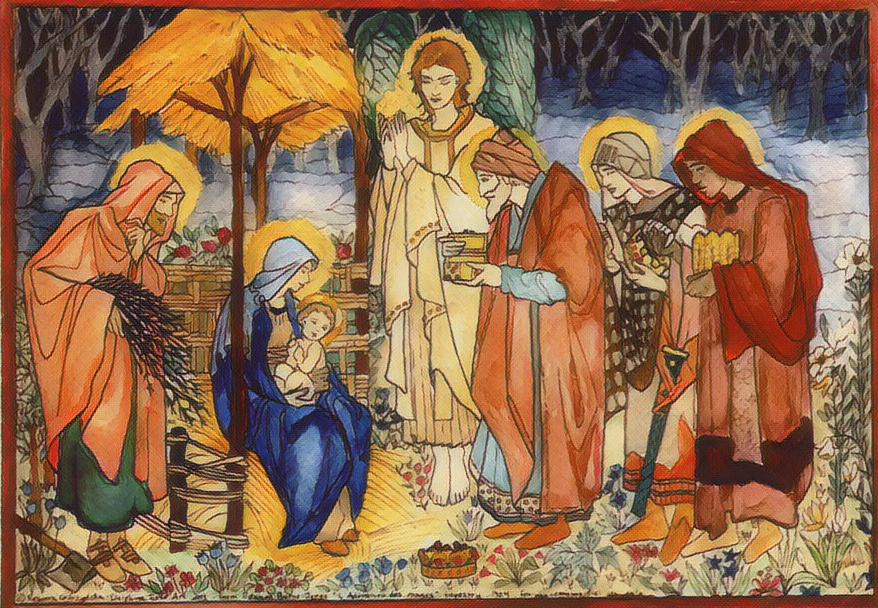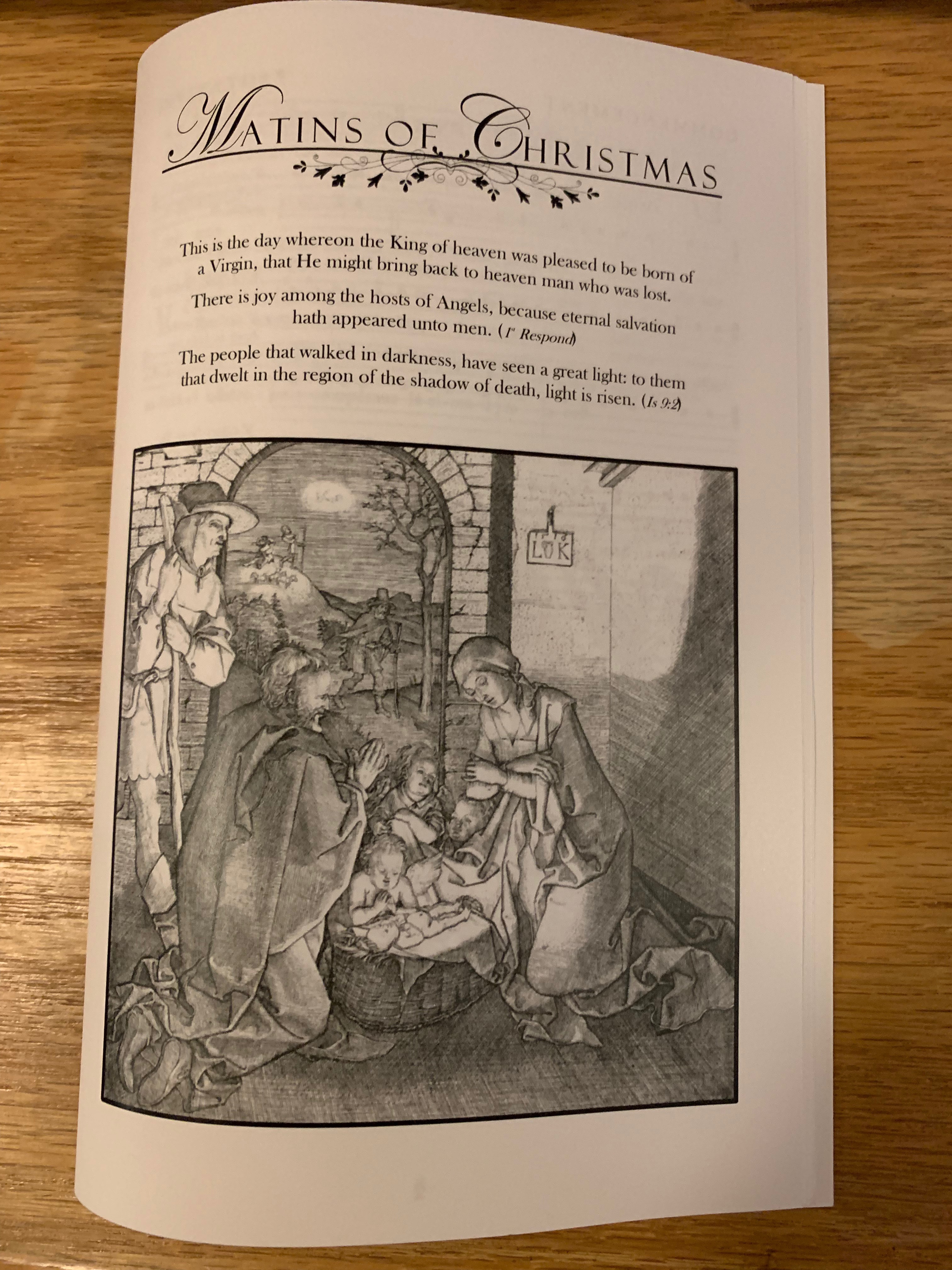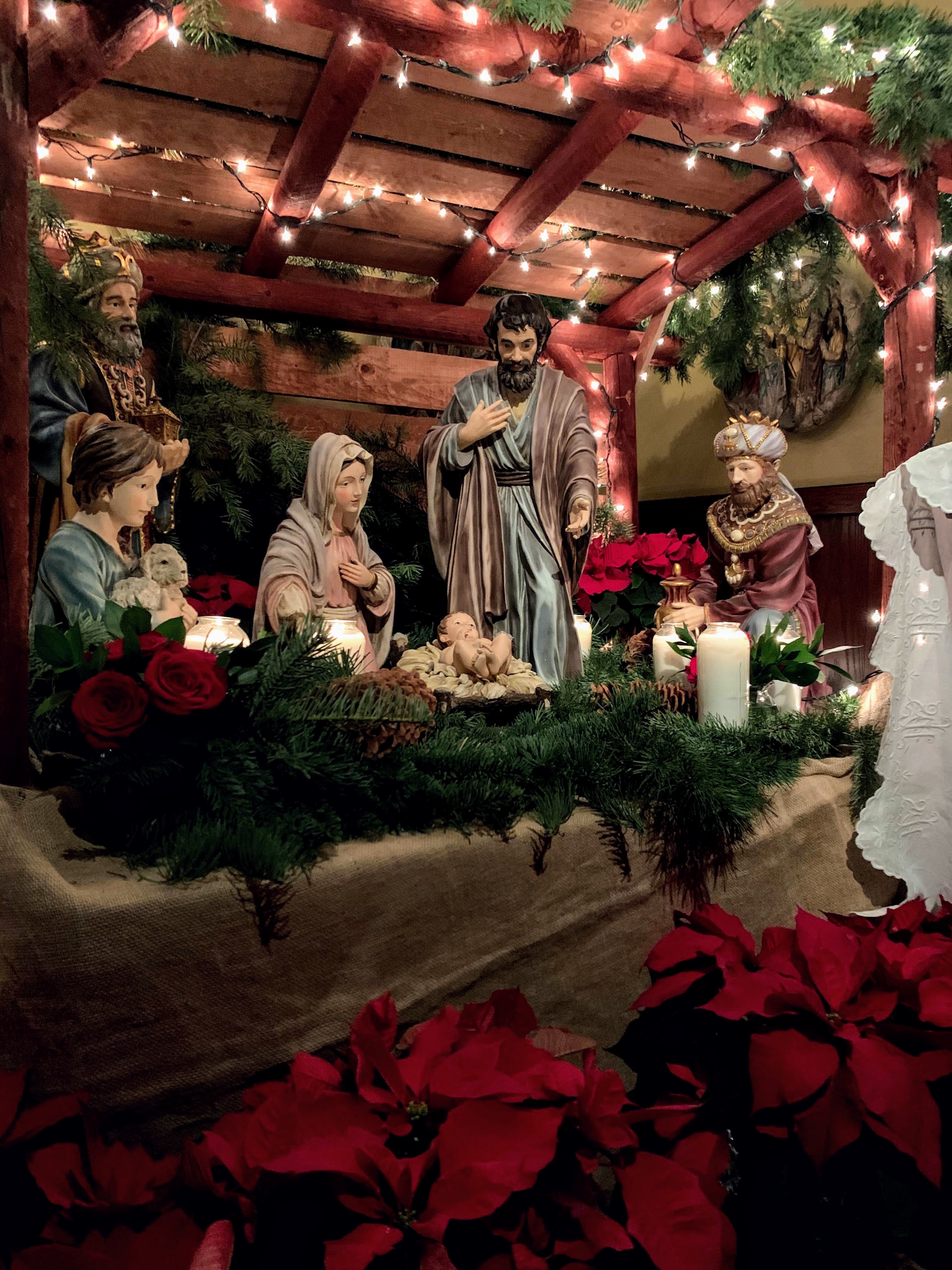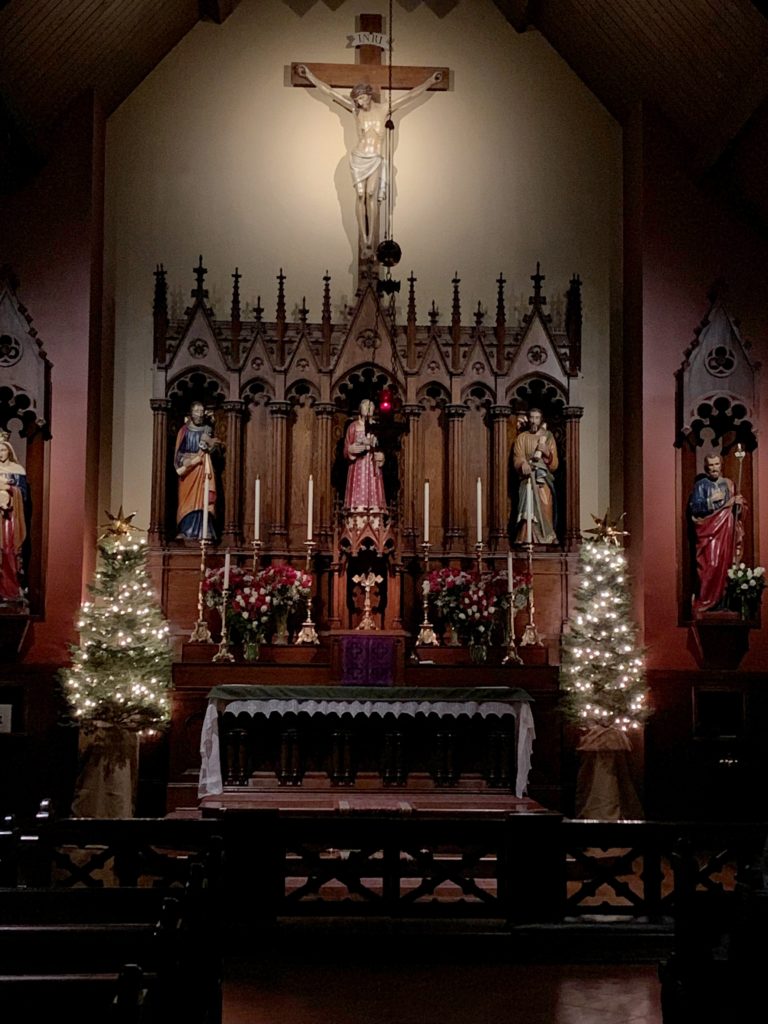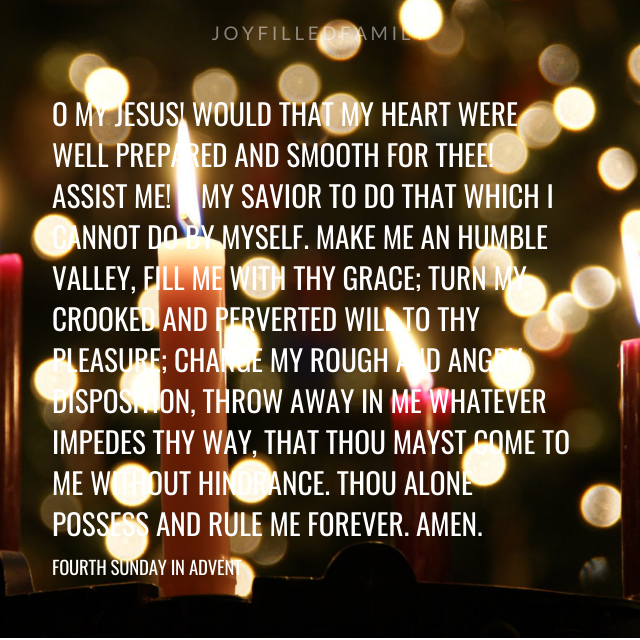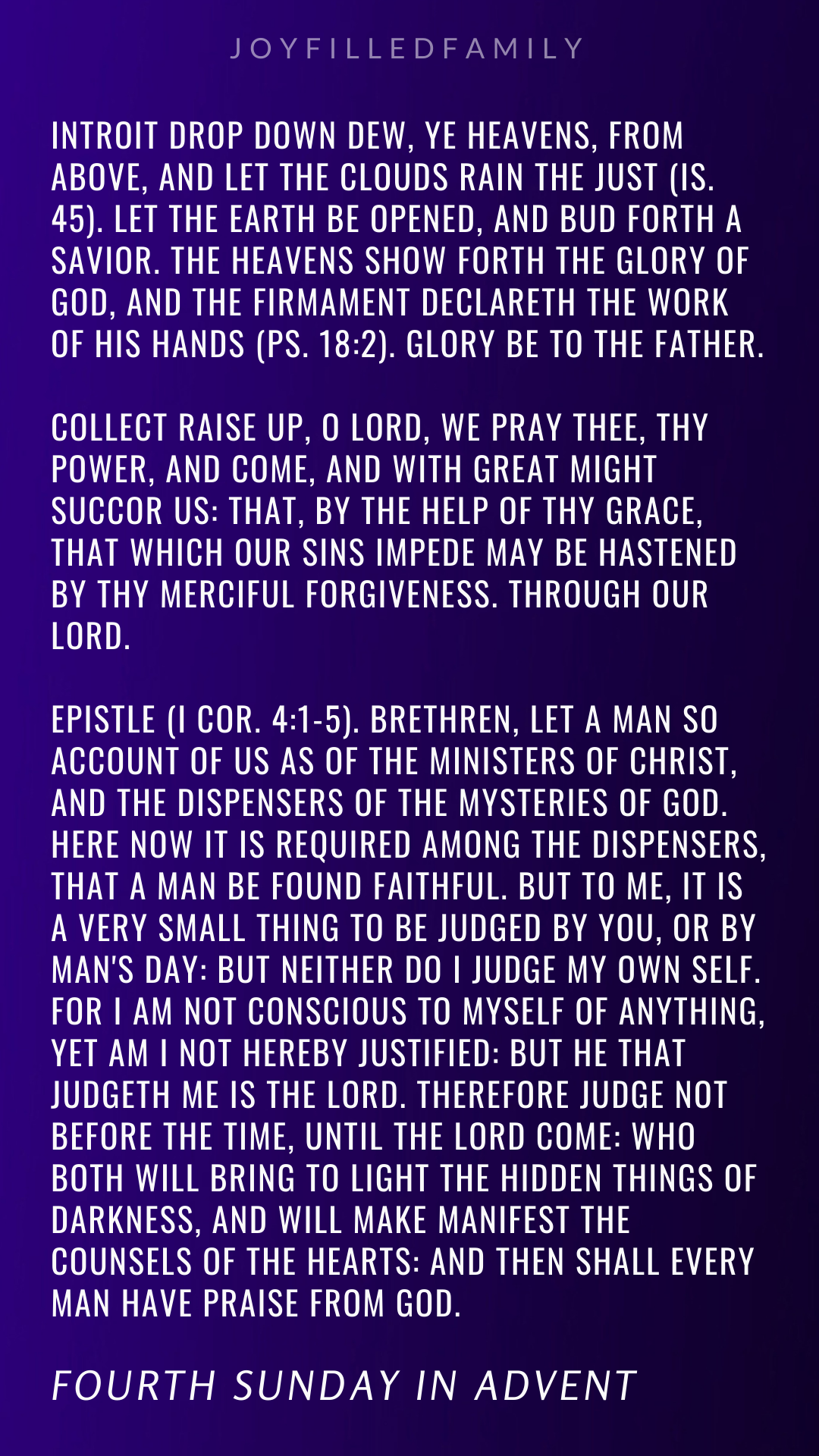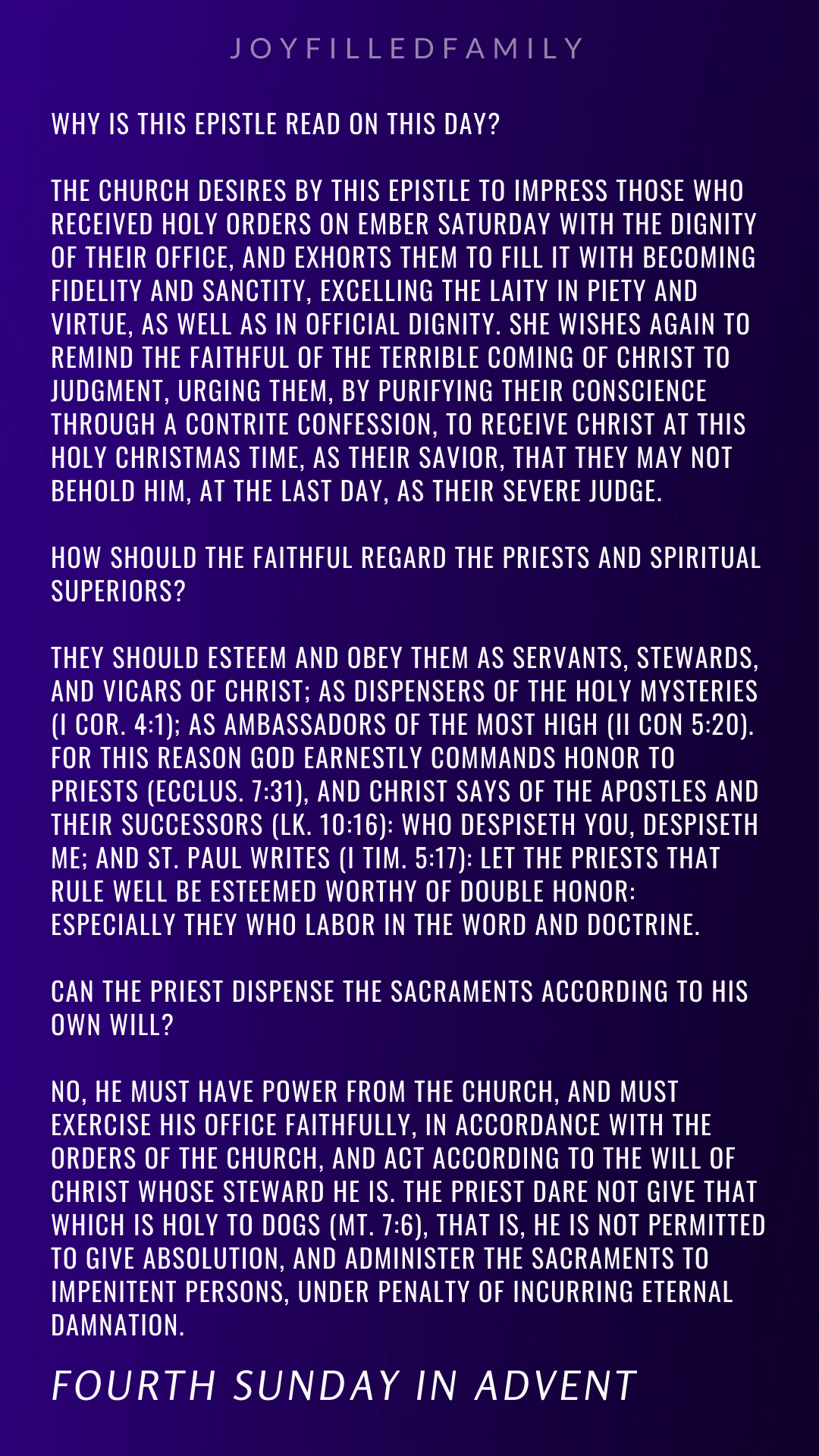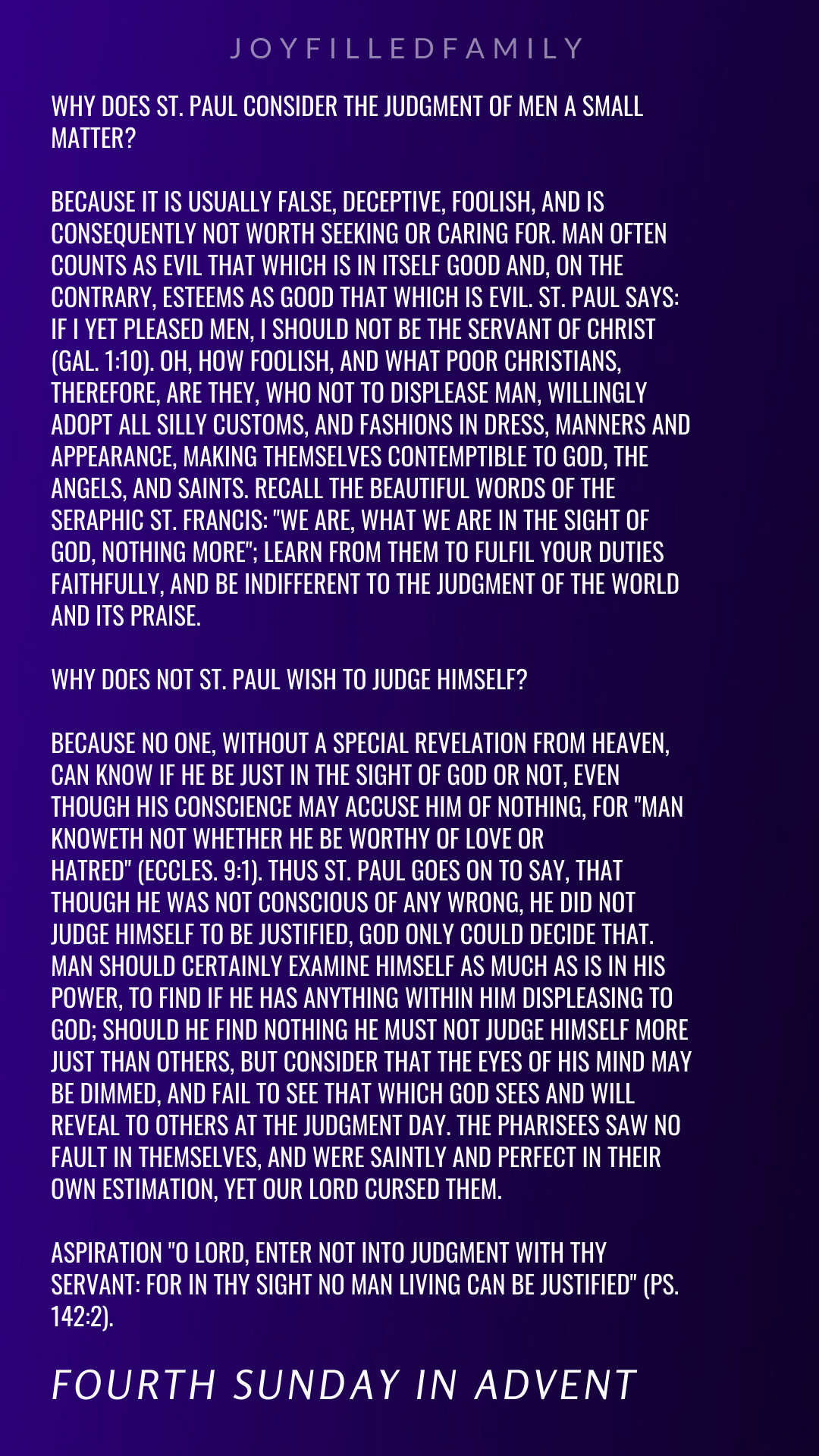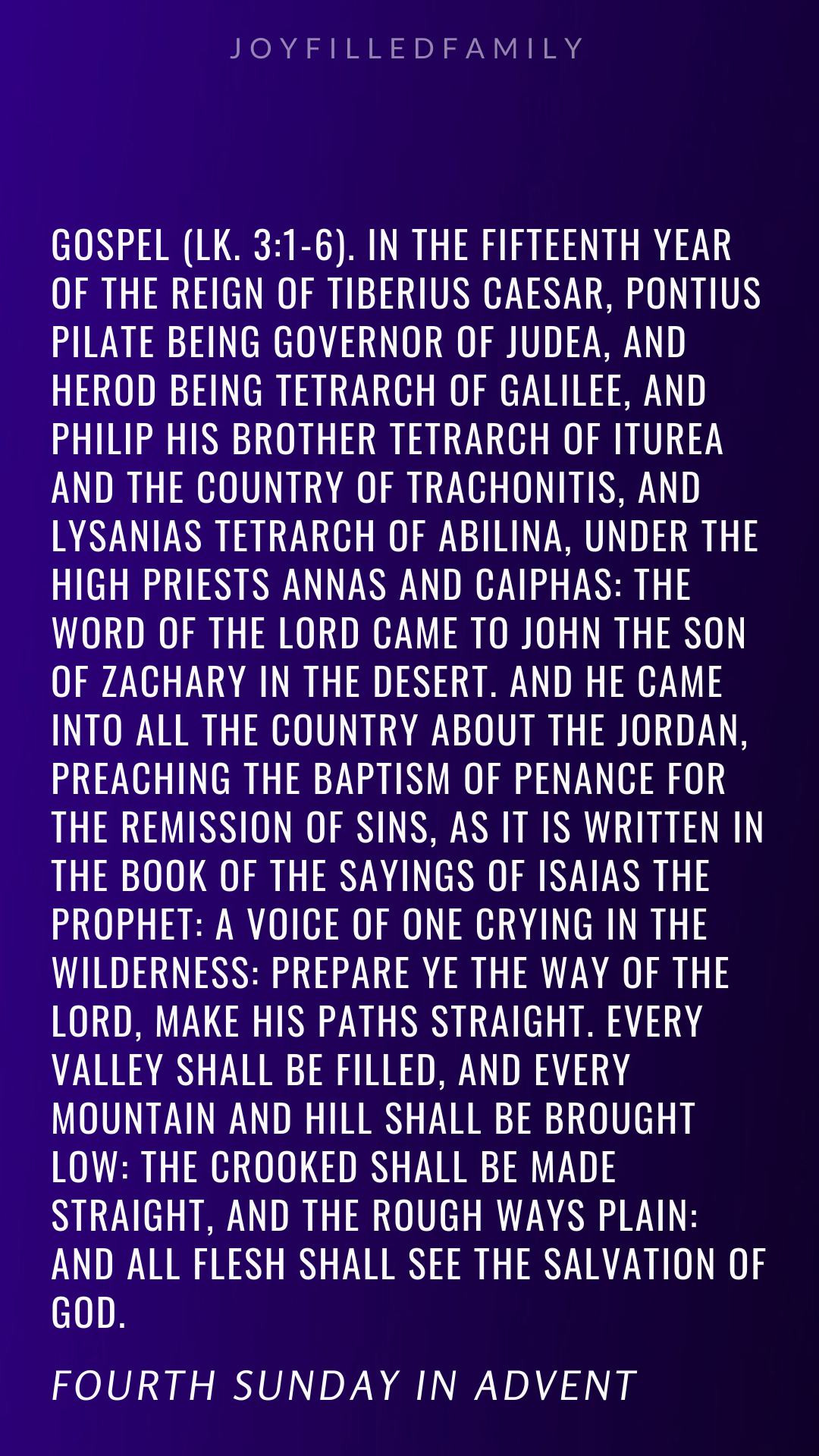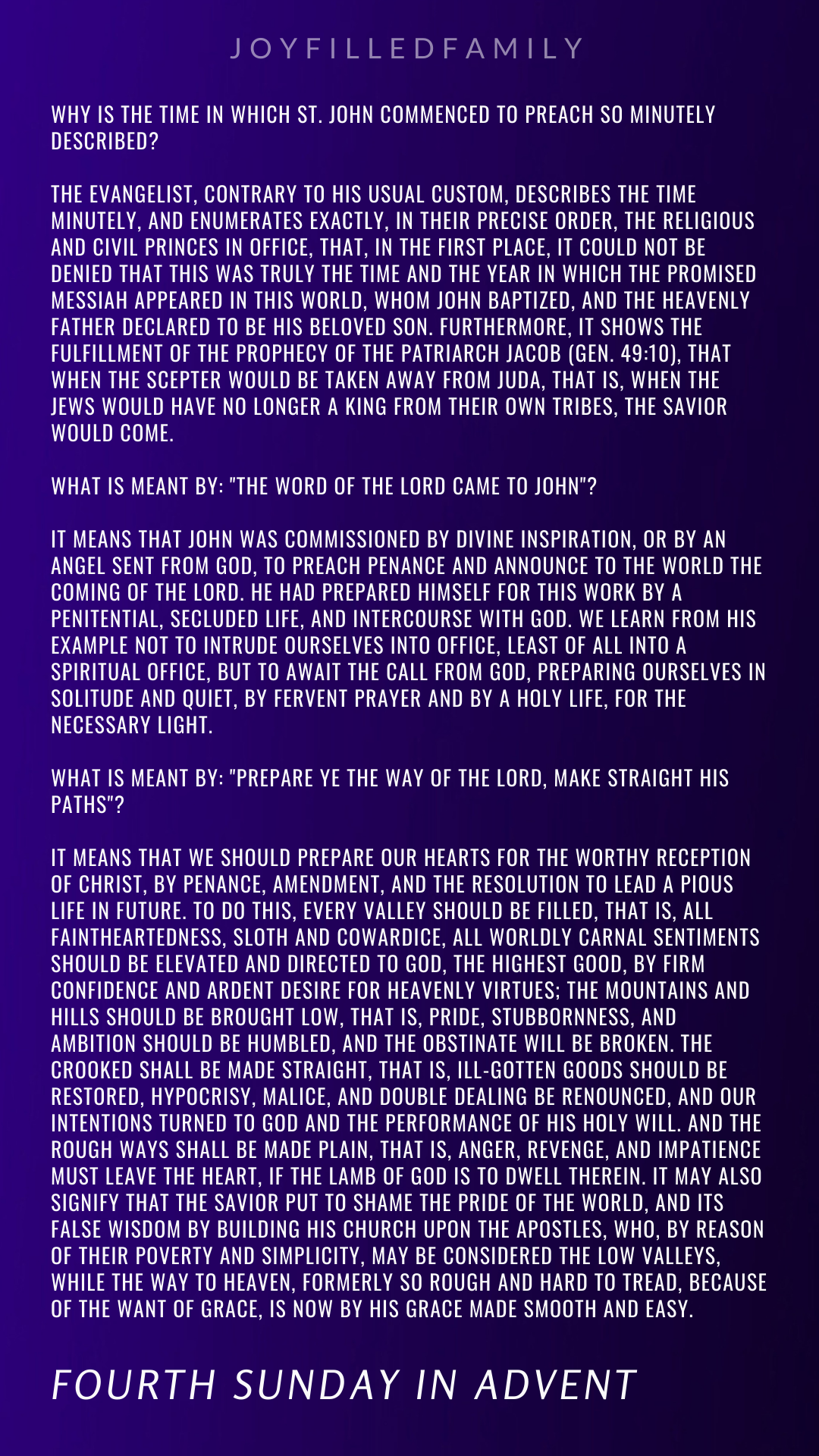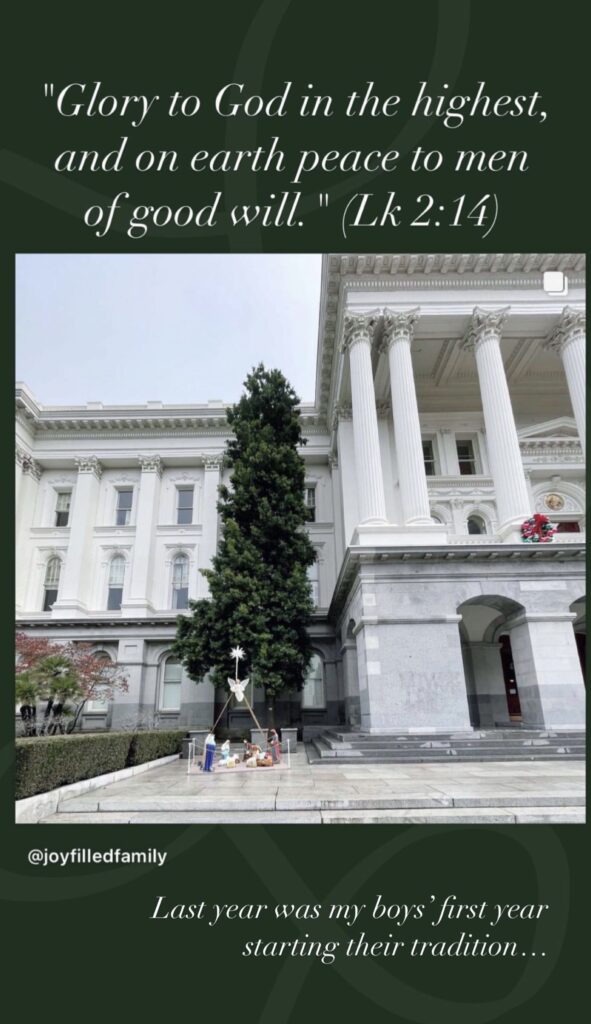

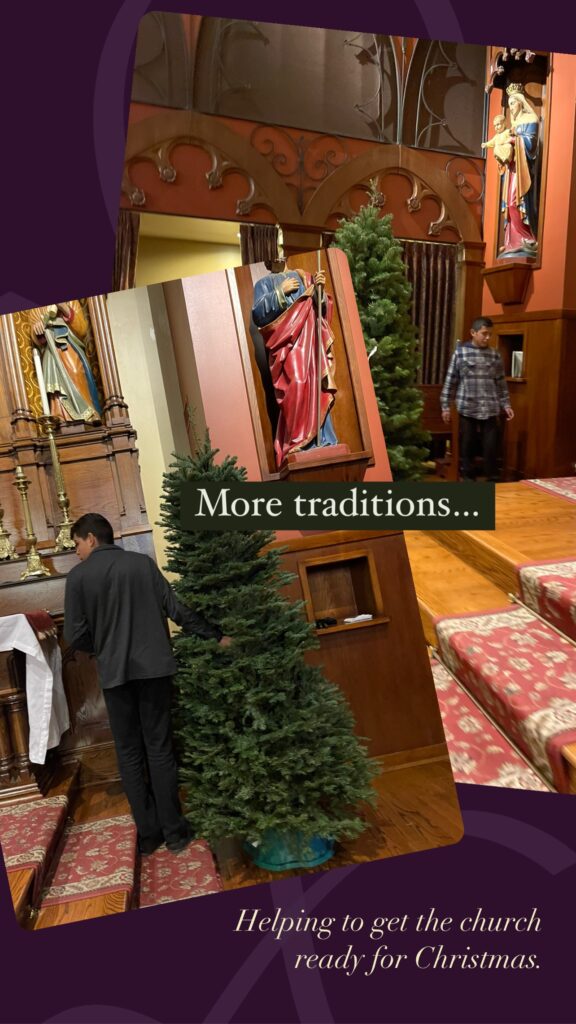

I’ve learned that this is how it has been culturally celebrated amongst many Mexican families. We were not one of those families growing up. We got together with all the relatives at my grandmother’s house and feasted on all the food & presents. Some would “attend” Midnight Mass together.
It looked nothing like how we do it now — we don’t even put gifts under our tree during Advent. The focus is never on the material gifts for us, only preparing our hearts to give to the Christ Child.
The Merry Christmas Beggar’s is now a favorite of my boys who get to listen to it at bedtime with Dad. It works outs since we do we away with technology & TV aside from a few occasional holy options.

A new tradition that has seemed to takeover the Nutcracker play, setting up a nativity at our State Capitol.
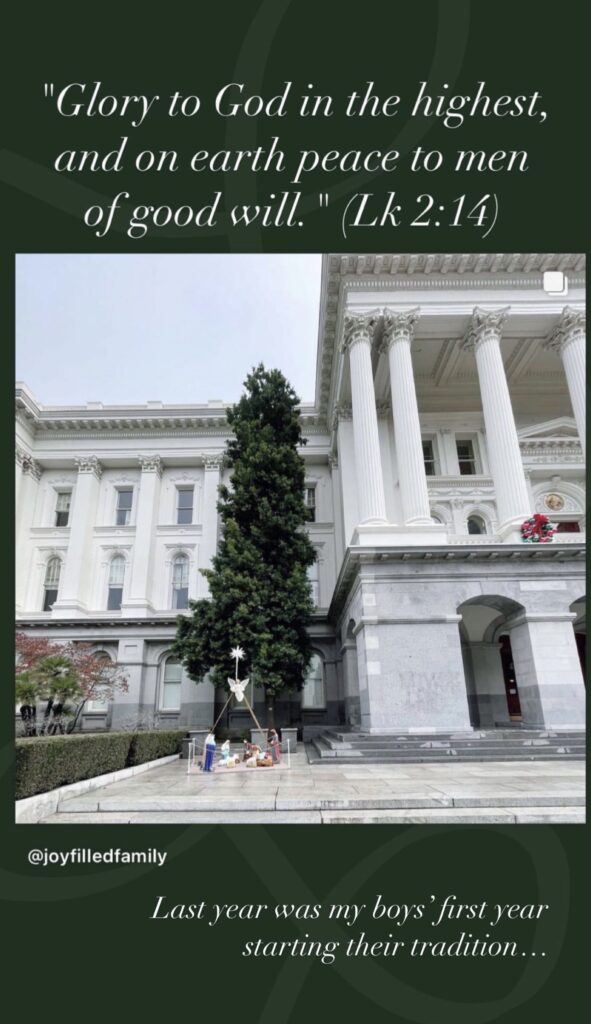



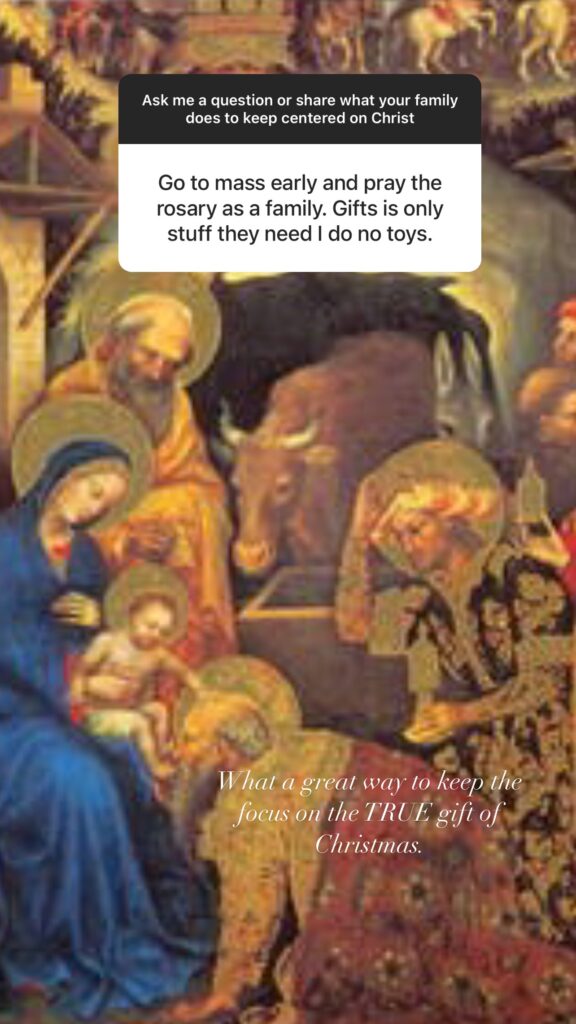
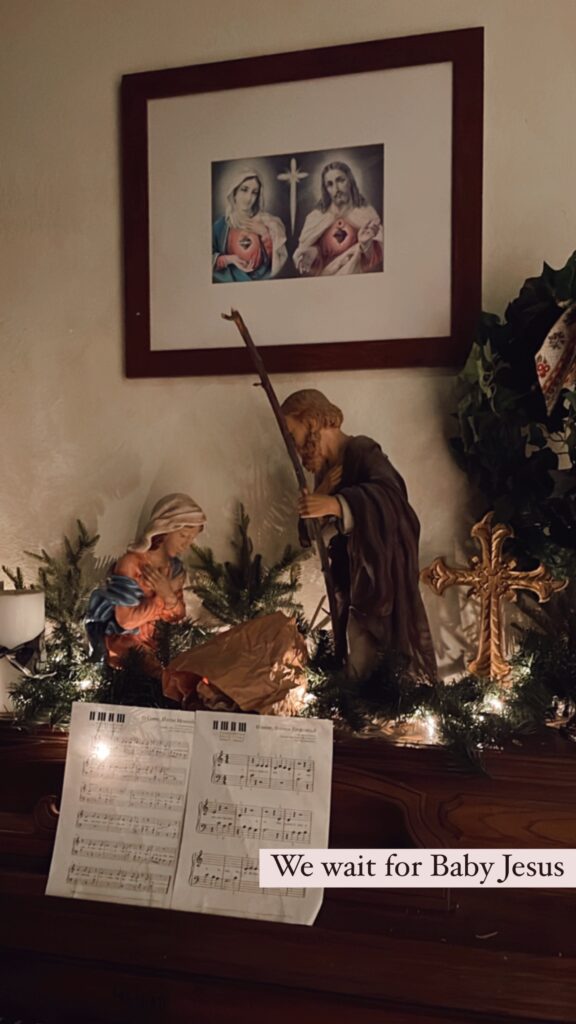

This year’s tree is slightly taller than our 12 foot artificial tree. We’re hoping that there are no allergy issues. But we’ll probably not keep it up for the entire Christmas season (40 days until the Purification of The BVM/Candlemas – Feb 2) to be on the safe side.



